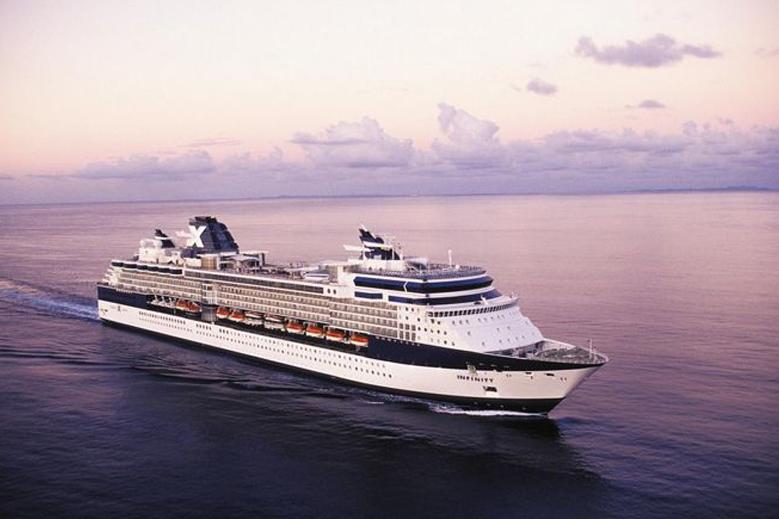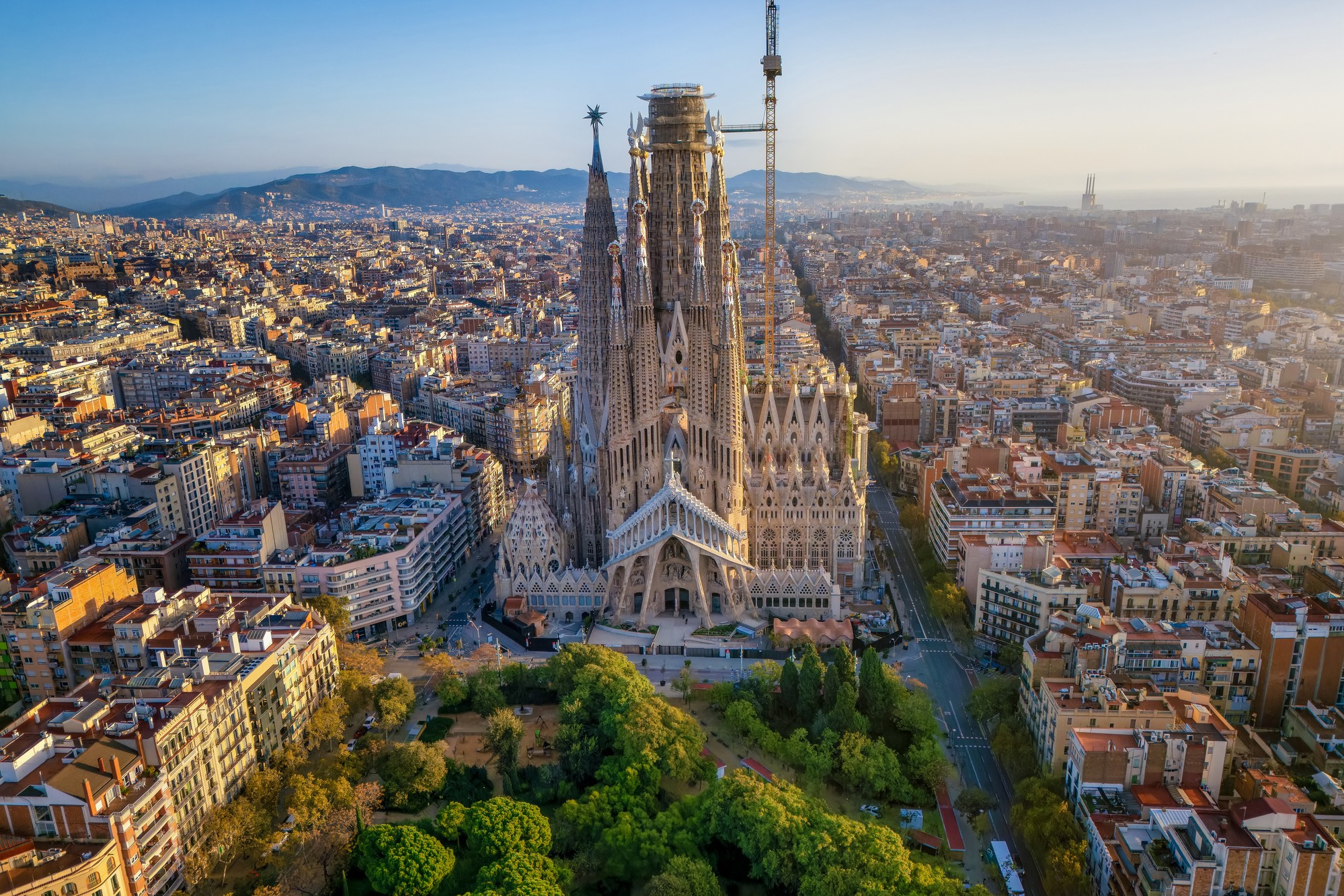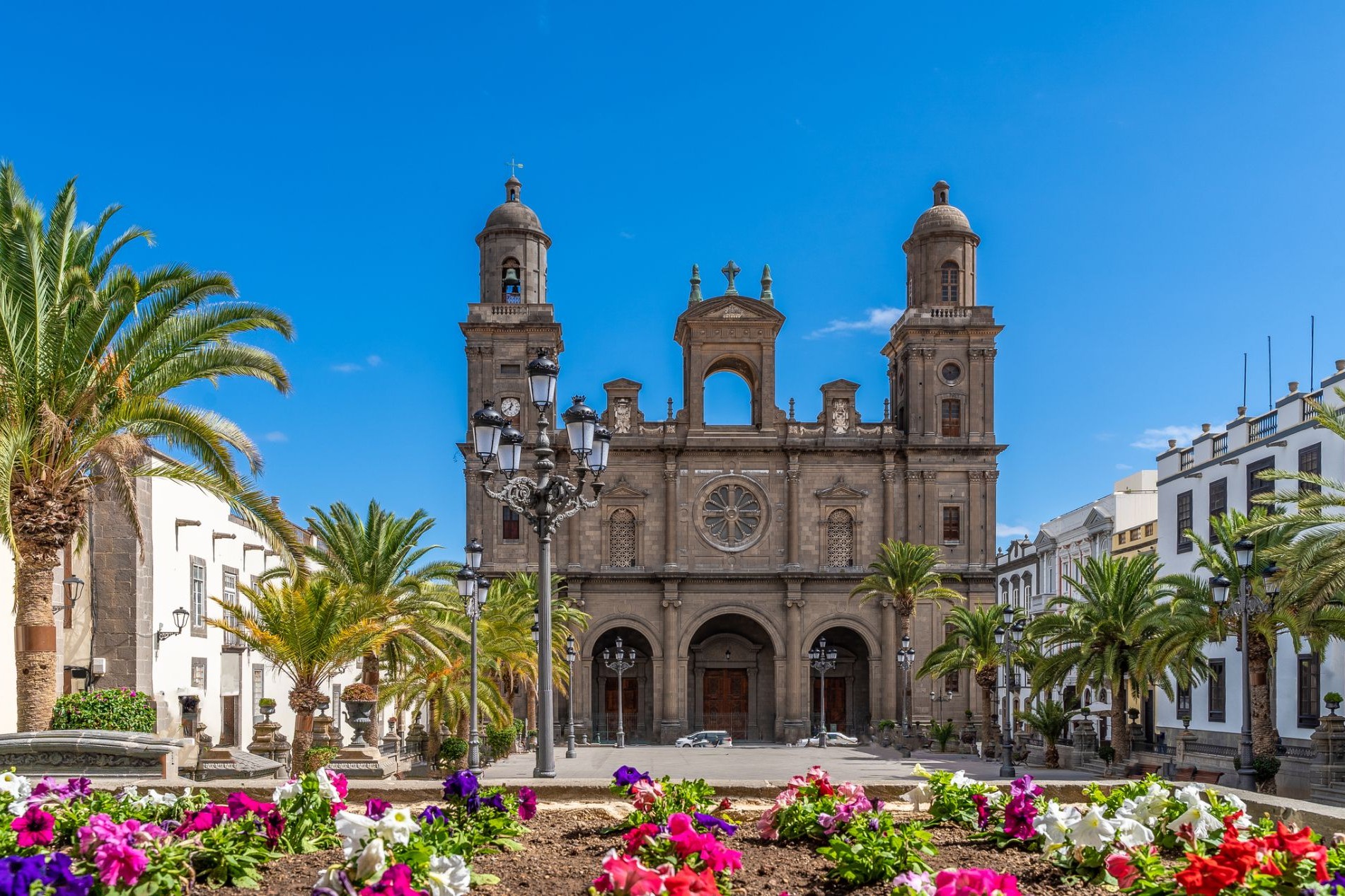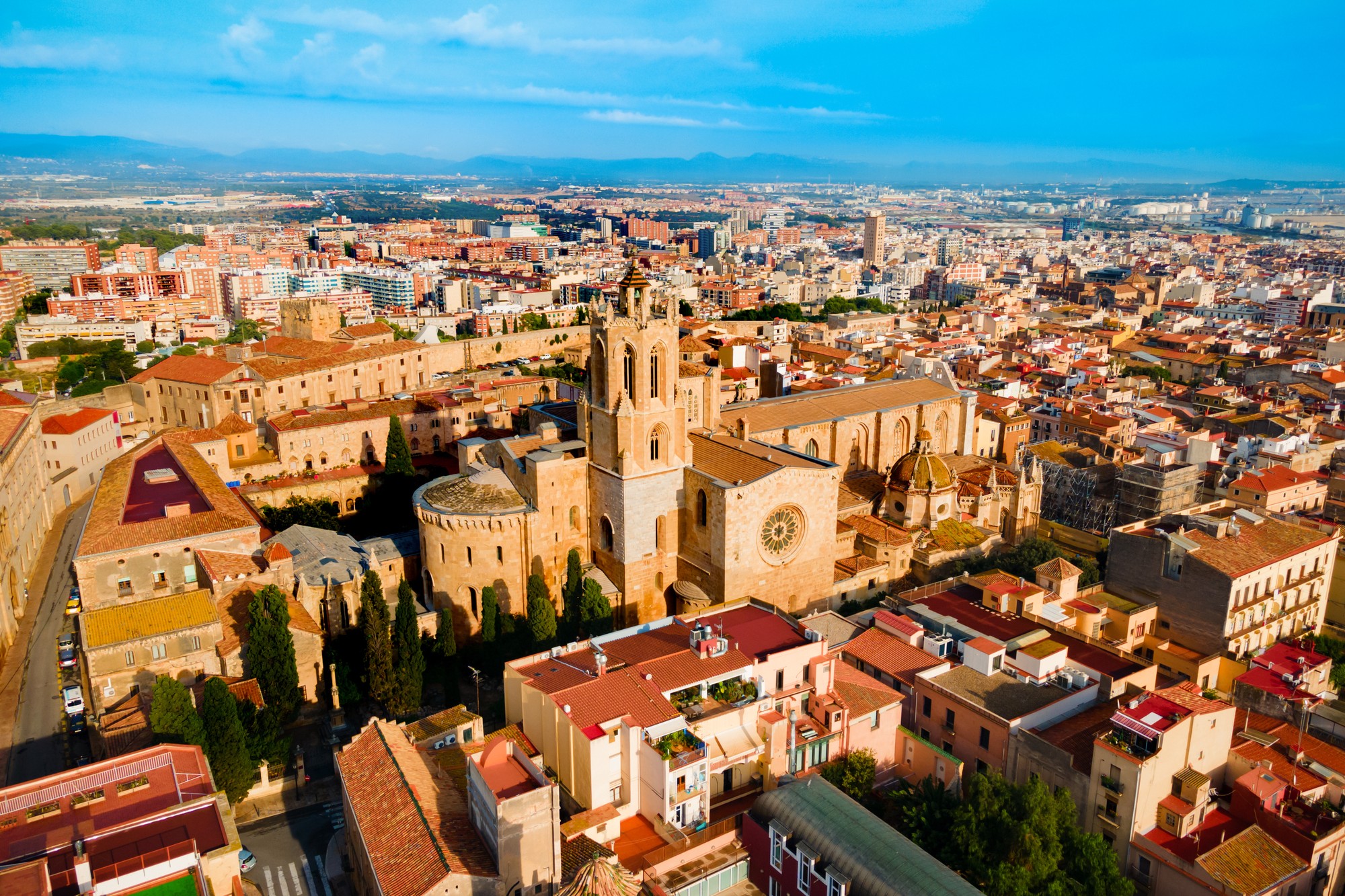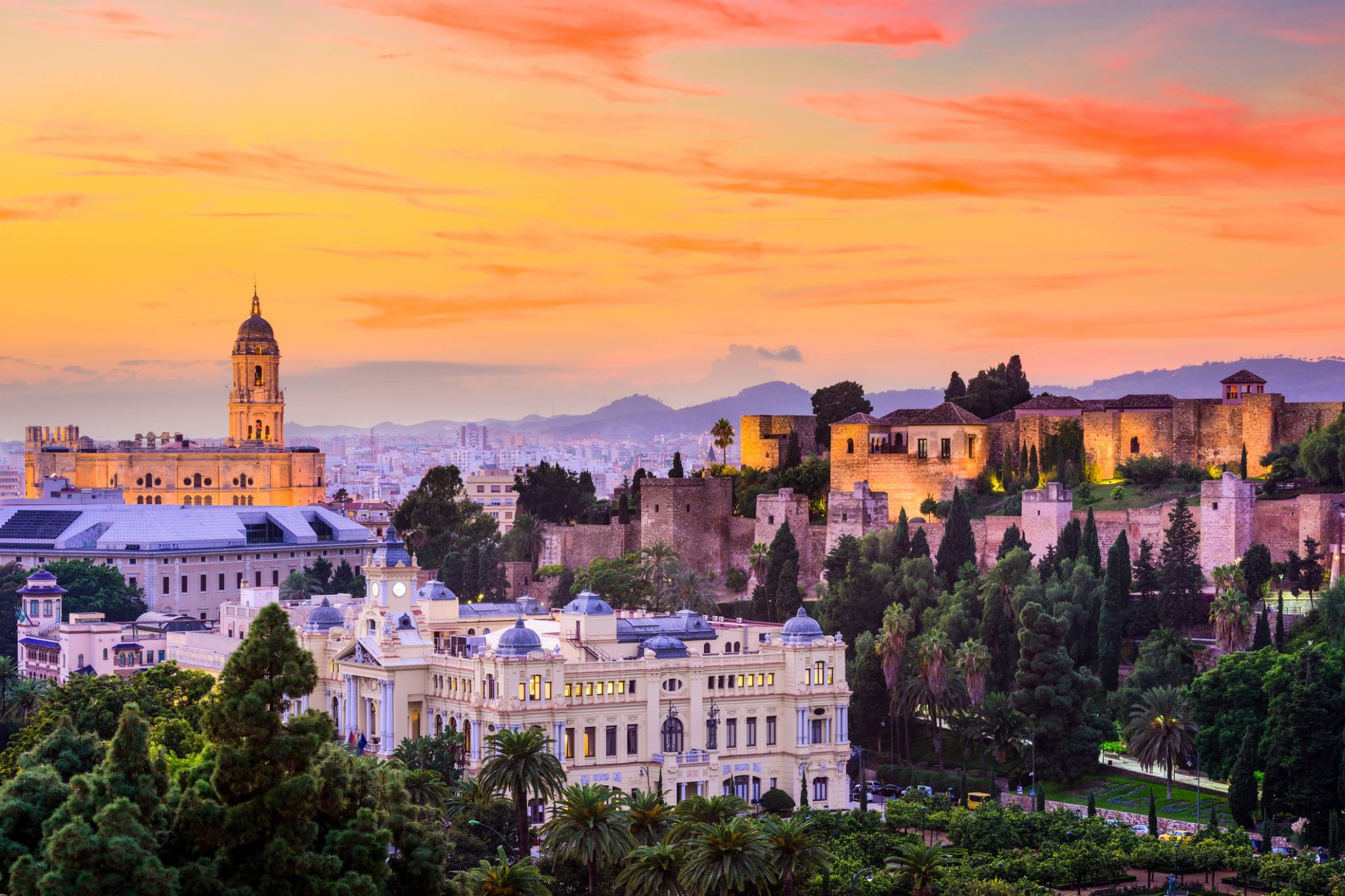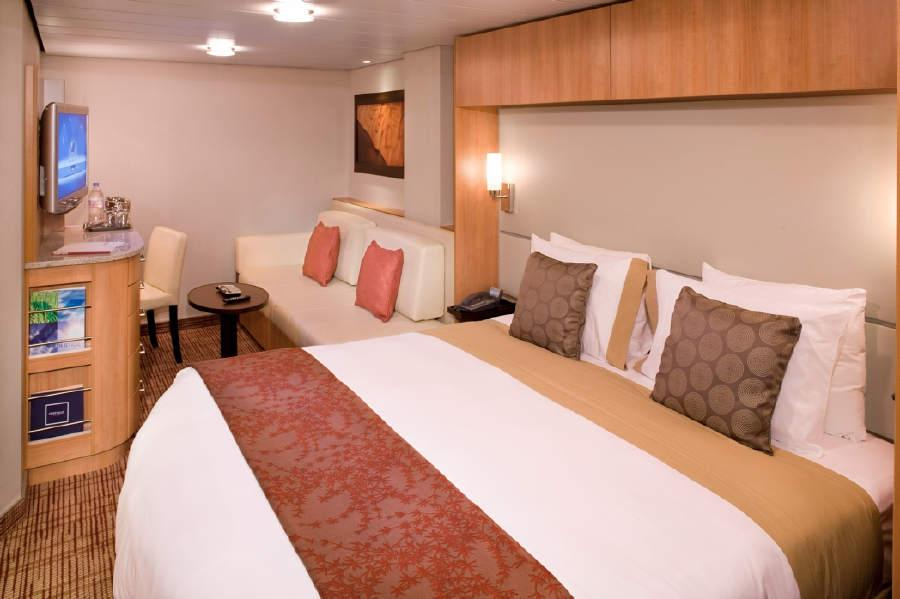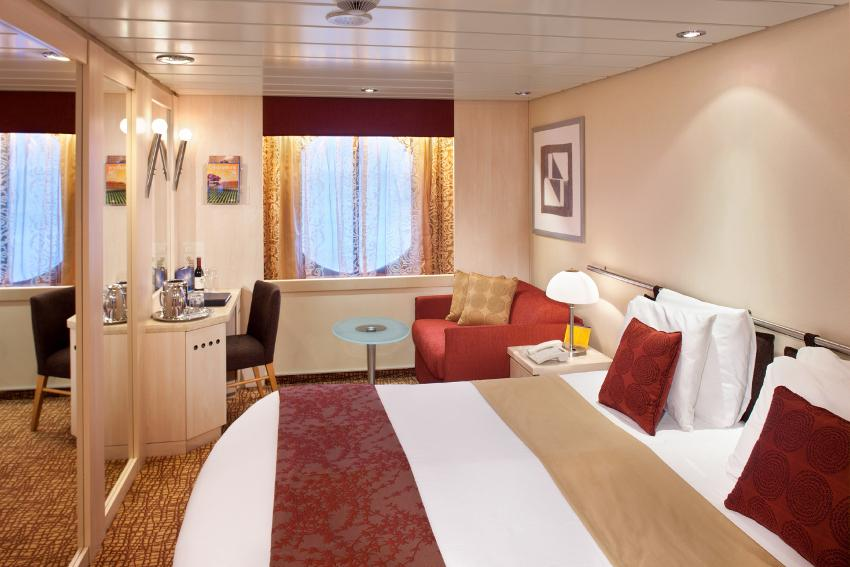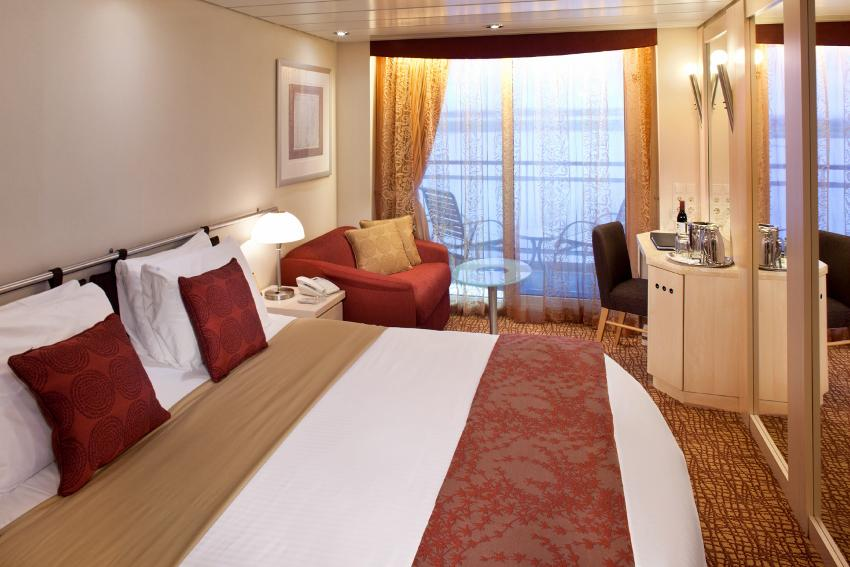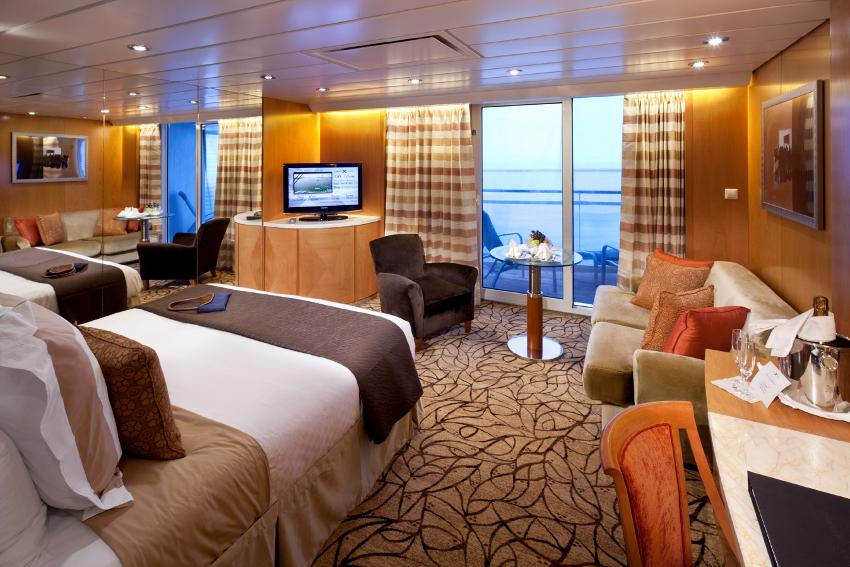Cruise: 30,876,929
12 nights, from Barcelona
| Cruise Region : Mediterranean Sea, Europe |
| Company : Celebrity Cruises |
| Ship : Celebrity Infinity |
| Journey Start : Sun 21 Dec 2025 |
| Journey End : Fri 02 Jan 2026 |
| Count Nights : 12 nights |
Schedule
| Day | Date | Port | Arrival | Departure |
|---|---|---|---|---|
| 1 | 21.12 Sun | Barcelona / Spain | 17:00 | |
| 2 | 22.12 Mon | Day at sea / Sea | ||
| 3 | 23.12 Tue | Gibraltar / Great Britain | 08:00 | 18:00 |
| 4 | 24.12 Wed | Day at sea / Sea | ||
| 5 | 25.12 Thu | Lanzarote Las Palmas / Spain | 08:00 | 18:00 |
| 6 | 26.12 Fri | Las Palmas (Gran Canaria) / Spain | 08:00 | 18:00 |
| 7 | 27.12 Sat | Tarragona / Spain | 08:00 | 18:00 |
| 8 | 28.12 Sun | Day at sea / Sea | ||
| 9 | 29.12 Mon | Casablanca / Morocco | 08:00 | 17:00 |
| 10 | 30.12 Tue | Tangier / Morocco | 08:00 | 17:00 |
| 11 | 31.12 Wed | Málaga / Spain | 08:00 | 18:00 |
| 12 | 1.01 Thu | Day at sea / Sea | ||
| 13 | 2.01 Fri | Barcelona / Spain | 05:00 |
Accommodation in a cabin of the selected category;
All-inclusive meal (except for alternative restaurants);
Used drinks: water, tea, coffee at self-service points on the liner;
All public entertainment on board (evening shows, night clubs, live music, etc.);
Participation of children in children's clubs;
Visiting pools and jacuzzis;
Gym, sports court, group classes;
Cabin service;
Port charges, fees and taxes;
For the category of Retreat cabins (suites) - Ultra all inclusive:
All the above services are included;
Robes for use on board;
Premium drinks package;
Premium Wi-Fi.
Аdditionally paid
air travel;
transfers;
visas along the route;
hotel before and after the cruise (if necessary);
tips for staff*;
alternative restaurants;
alcoholic and some non-alcoholic drinks;
Internet and telephone on board;
casino on board;
laundry/dry cleaning services;
beauty salon, SPA center;
excursions in ports (optional).
*The size of the tip depends on the chosen cabin category:
(inside cabin, with window, with balcony, Infinity Veranda) cost $18.00 per guest per day,
for Concierge and AquaClass cabins $18.50 per guest per day,
and for suites - $23.00 per guest per day.
The cost of the tip is automatically added to the final invoice. If you pre-pay a tip when booking a cruise, the tip will not be reflected on your final onboard bill.
CELEBRITY CRUISES DRINK PACKAGES
There are both alcoholic and non-alcoholic cruise packages to suit every taste.
The new All Inclusive package comes with the Classic Beverage Package, which allows you to enjoy unlimited water, beer, cocktails, frozen drinks and draft wines up to $10 per serving. The Classic Beverage Package also includes a 15% discount on all bottles of wine.
Premium Beverage Packages include all the options available in the Classic Beverage Packages, plus premium coffee, fresh juices, bottled and canned juices, San Pellegrino, Red Bull, Vitamin Water, Fair Trade Iced Tea, Craft and Artisan Beer, Premium Liquors, Coke. Cokes, premium bottled water, draft wines up to $17 and 20% off bottled wine.
Classic Package
With the Classic Package, you can choose from an incredible selection of beers, spirits, cocktails, liqueurs, frozen drinks and draft wines up to $10 per serving. You also get 15% off all bottled wines. The Classic Package starts at $89 per day.
Premium Package
Starting at $109 per day, the Premium Package includes signature coffees and teas, craft and artisanal beers, spirits, cocktails, frozen drinks, Coca-Cola products, premium bottled water and wines by the glass up to $17 per serving. You also get 20% off all bottles of wine.
*All Inclusive package must be selected, which includes Classic Beverage Package, Basic Internet Package, and gratuities, and is valid within AquaClass® staterooms, except Galapagos. All guests in the stateroom must select the same pricing package.
Zero Proof Beverage Package
The Zero Proof Drink Package is $30 per day. This package covers all your essentials, such as fresh juices, premium coffee and tea, and bottled water.
Depending on the cruise date, to confirm the cabin, you must make a payment according to the schedule.
After making the prepayment, the manager confirms the application in the cruise system.
Deposit (prepayment)
Cruise duration 1-5 nights - 100 USD / person
6 or more nights - 450 USD / person
Full payment no later than 60 days before the start of the cruise
Full payment (cruises in the period December 24-31) no later than 90 days before the start of the cruise
Standard Penalties for Celebrity Cruises
Cancelation Period Cancellation Policy
90-61 Days Prior to Arrival
1-5 Nights $35/person
6 Nights or more $70/person
60-46 Days Prior to Arrival In the Amount of Deposit
45-31 Days Prior to Arrival 25% of the Full Cruise Cost, but no less than the Deposit
30-15 Days Prior to Arrival 50% of the Full Cruise Cost, but no less than the Deposit
14 Days Prior to Arrival/No-Show for Boarding 100% of the Cruise Cost
Penalties for Celebrity New Year's Cruises (December 24-31)
Period in which the cancellation took place Cancellation conditions
90-61 days before arrival In the amount of the deposit
60-46 days before arrival
1-5 Nights 25% of the full cost of the cruise, but not less than the deposit amount
6 Nights or more 50% of the full cost of the cruise, but not less than the deposit amount
45-31 days before arrival 50% of the full cost of the cruise, but not less than the deposit amount
30-15 days before arrival 75% of the full cost of the cruise, but not less than the deposit amount
14 days before arrival/no show for boarding 100% of the cost of the cruise
-
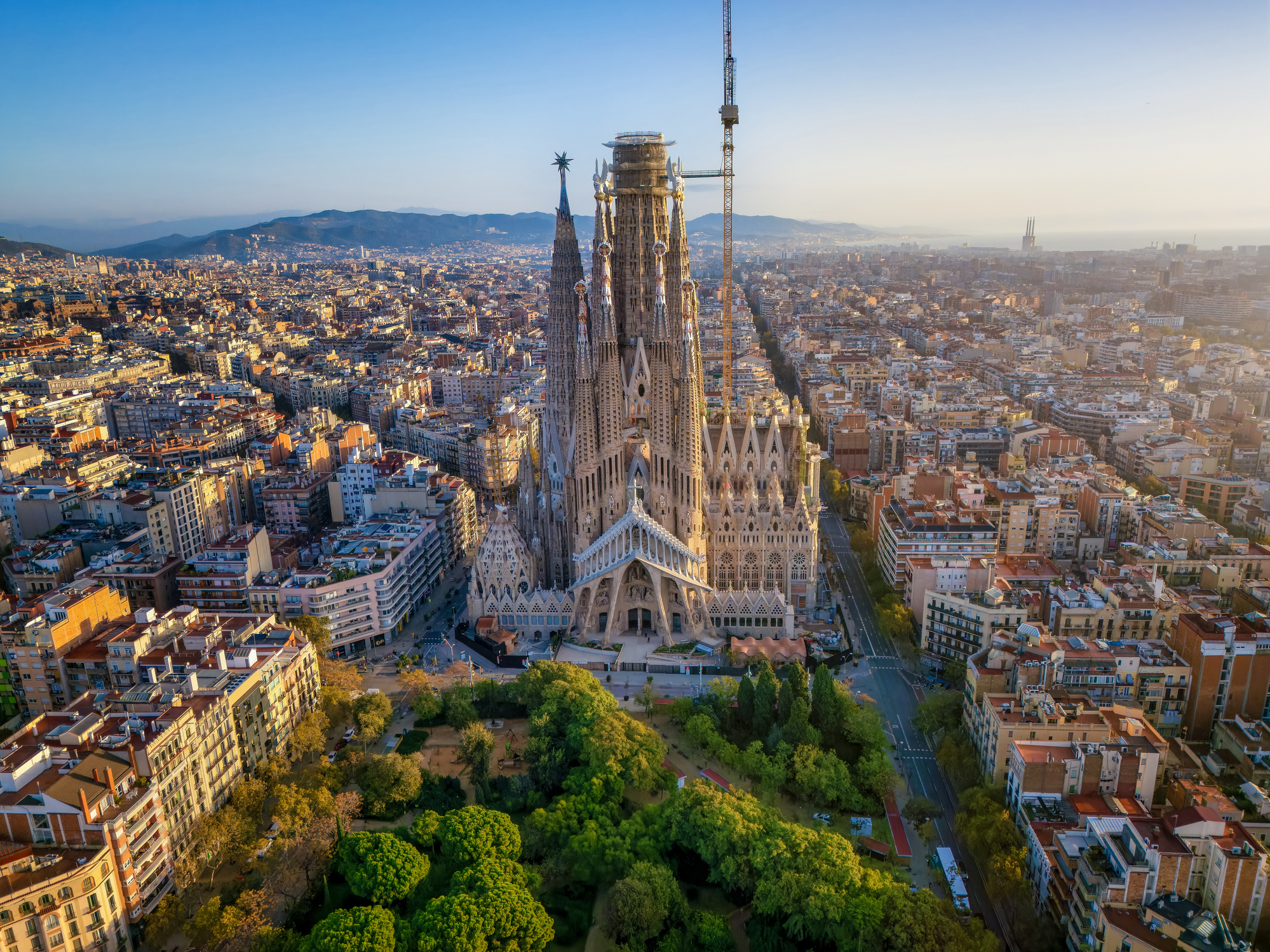 Day 1: 00:00-17:00
Day 1: 00:00-17:00Barcelona / Spain
Barcelona is a city in Spain. It is the capital and largest city of Catalonia, as well as the second most populous municipality of Spain. With a population of 1.6 million within city limits, its urban area extends to numerous neighbouring municipalities within the Province of Barcelona and is home to around 4.8 million people, making it the sixth most populous urban area in the European Union after Paris, London, Madrid, the Ruhr area and Milan. It is one of the largest metropolises on the Mediterranean Sea, located on the coast between the mouths of the rivers Llobregat and Besòs, and bounded to the west by the Serra de Collserola mountain range, the tallest peak of which is 512 metres (1,680 feet) high.
Founded as a Roman city, in the Middle Ages Barcelona became the capital of the County of Barcelona. After merging with the Kingdom of Aragon, Barcelona continued to be an important city in the Crown of Aragon as an economic and administrative centre of this Crown and the capital of the Principality of Catalonia. Barcelona has a rich cultural heritage and is today an important cultural centre and a major tourist destination. Particularly renowned are the architectural works of Antoni Gaudí and Lluís Domènech i Montaner, which have been designated UNESCO World Heritage Sites. The headquarters of the Union for the Mediterranean are located in Barcelona. The city is known for hosting the 1992 Summer Olympics as well as world-class conferences and expositions and also many international sport tournaments.
Barcelona is one of the world's leading tourist, economic, trade fair and cultural centres, and its influence in commerce, education, entertainment, media, fashion, science, and the arts all contribute to its status as one of the world's major global cities. It is a major cultural and economic centre in southwestern Europe, 24th in the world (before Zürich, after Frankfurt) and a financial centre. In 2008 it was the fourth most economically powerful city by GDP in the European Union and 35th in the world with GDP amounting to €177 billion. In 2012 Barcelona had a GDP of $170 billion; and it was leading Spain in employment rate in that moment.
In 2009 the city was ranked Europe's third and one of the world's most successful as a city brand. In the same year the city was ranked Europe's fourth best city for business and fastest improving European city, with growth improved by 17% per year, and the city has been experiencing strong and renewed growth for the past three years. Since 2011 Barcelona has been a leading smart city in Europe. Barcelona is a transport hub, with the Port of Barcelona being one of Europe's principal seaports and busiest European passenger port, an international airport, Barcelona–El Prat Airport, which handles over 50 million passengers per year, an extensive motorway network, and a high-speed rail line with a link to France and the rest of Europe.
-
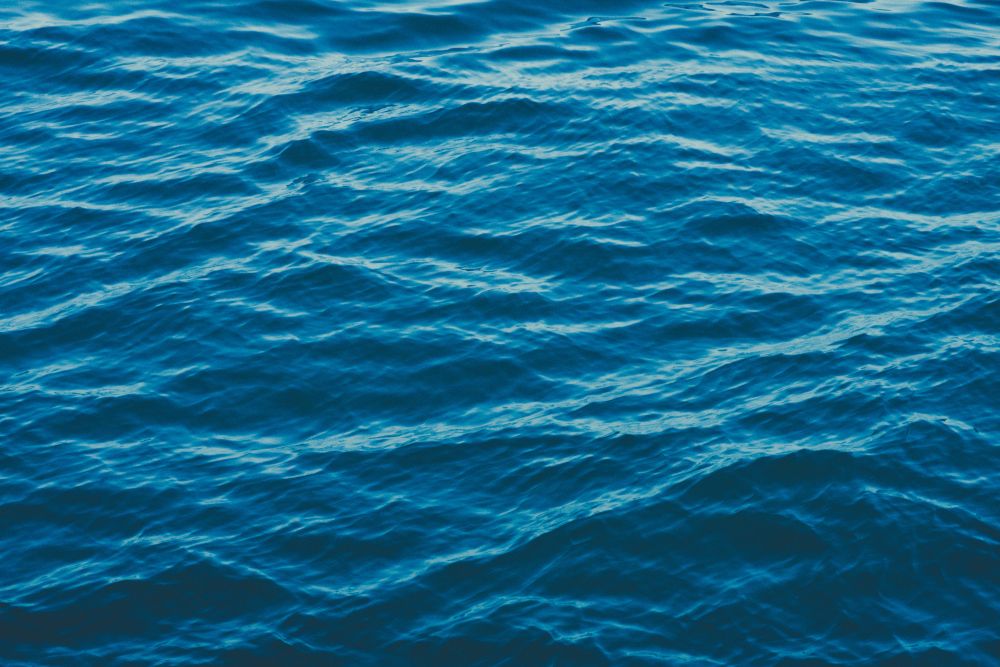 Day 2:
Day 2:Day at sea / Sea
-
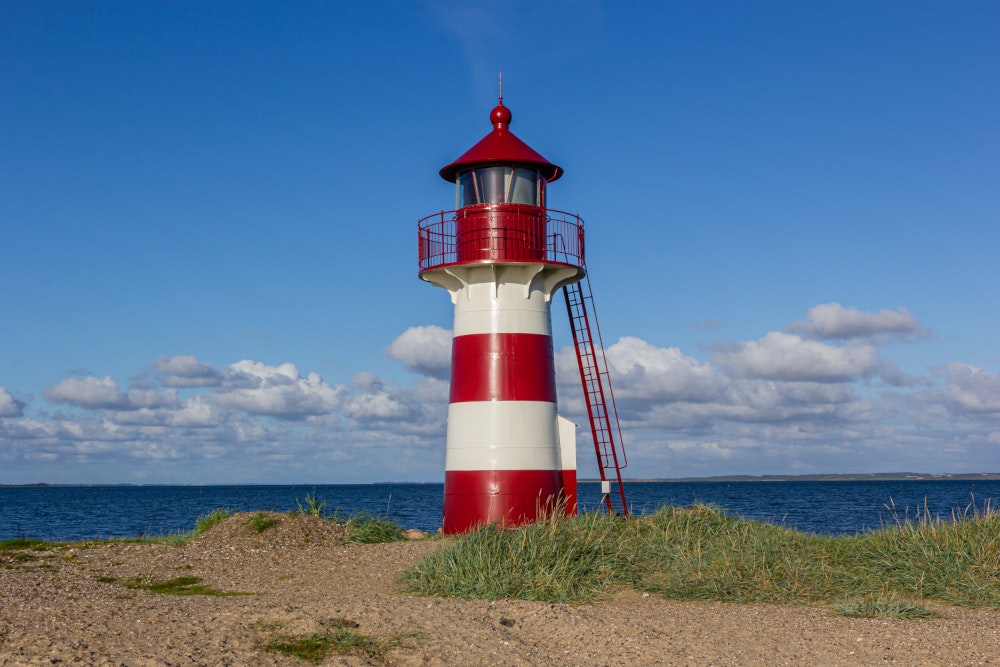 Day 3: 08:00-18:00
Day 3: 08:00-18:00Gibraltar / Great Britain
Gibraltar is a British Overseas Territory located at the southern tip of the Iberian Peninsula. It has an area of 6.7 km2 (2.6 sq mi) and is bordered to the north by Spain. The landscape is dominated by the Rock of Gibraltar at the foot of which is a densely populated town area, home to over 30,000 people, primarily Gibraltarians. It shares a maritime border with Morocco.
In 1704, Anglo-Dutch forces captured Gibraltar from Spain during the War of the Spanish Succession on behalf of the Habsburg claim to the Spanish throne. The territory was ceded to Great Britain in perpetuity under the Treaty of Utrechtin 1713. During World War II it was an important base for the Royal Navy as it controlled the entrance and exit to the Mediterranean Sea, which is only 8 miles (13 km) wide at this naval choke point. It remains strategically important, with half the world's seaborne trade passing through the strait. Today Gibraltar's economy is based largely on tourism, online gambling, financial services and cargo ship refuelling.
The sovereignty of Gibraltar is a point of contention in Anglo-Spanish relations because Spain asserts a claim to the territory. Gibraltarians rejected proposals for Spanish sovereignty in a 1967 referendum and, in a 2002 referendum, the idea of shared sovereignty was also rejected.
-
 Day 4:
Day 4:Day at sea / Sea
-
 Day 5: 08:00-18:00
Day 5: 08:00-18:00Lanzarote Las Palmas / Spain
-
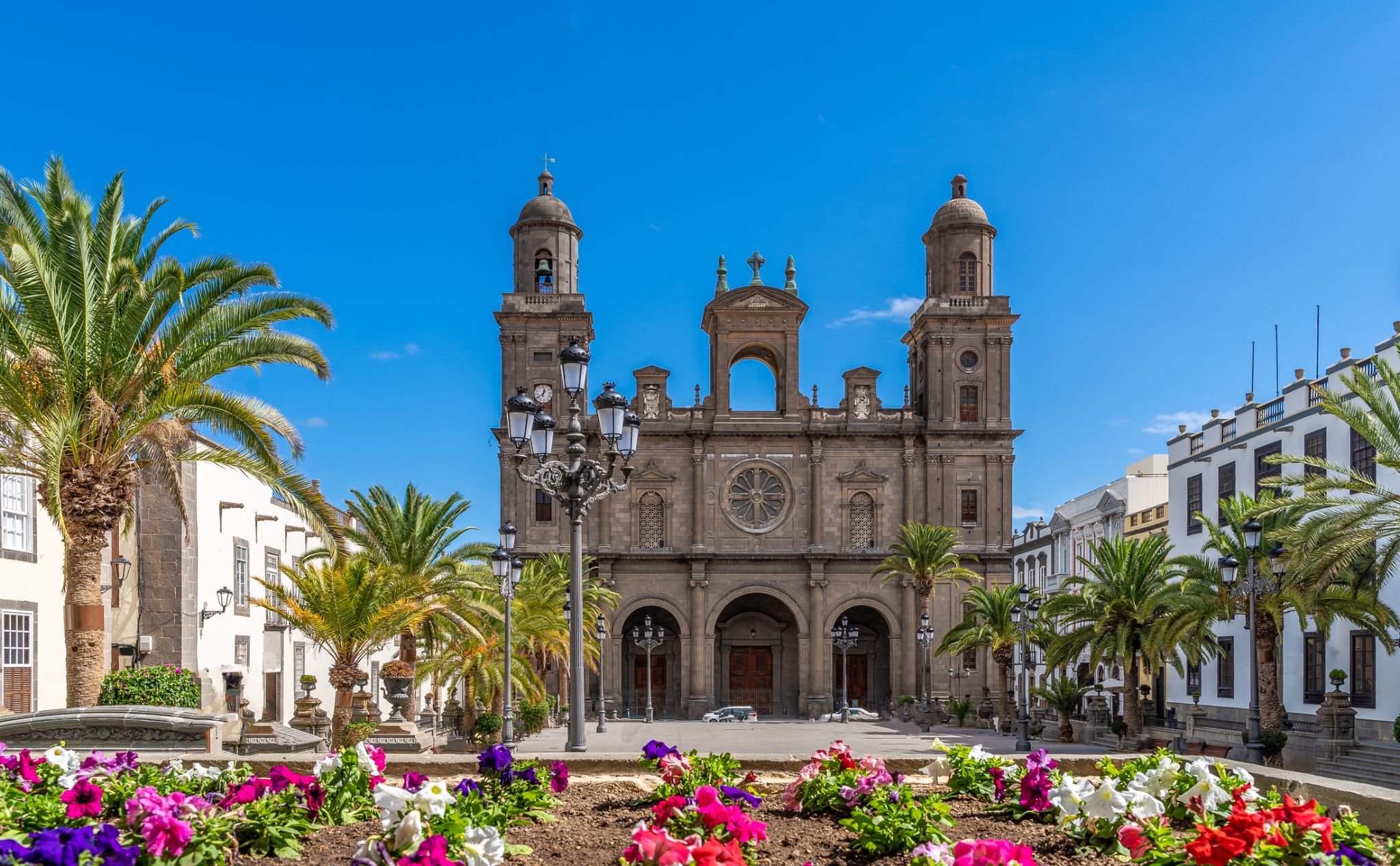 Day 6: 08:00-18:00
Day 6: 08:00-18:00Las Palmas (Gran Canaria) / Spain
-
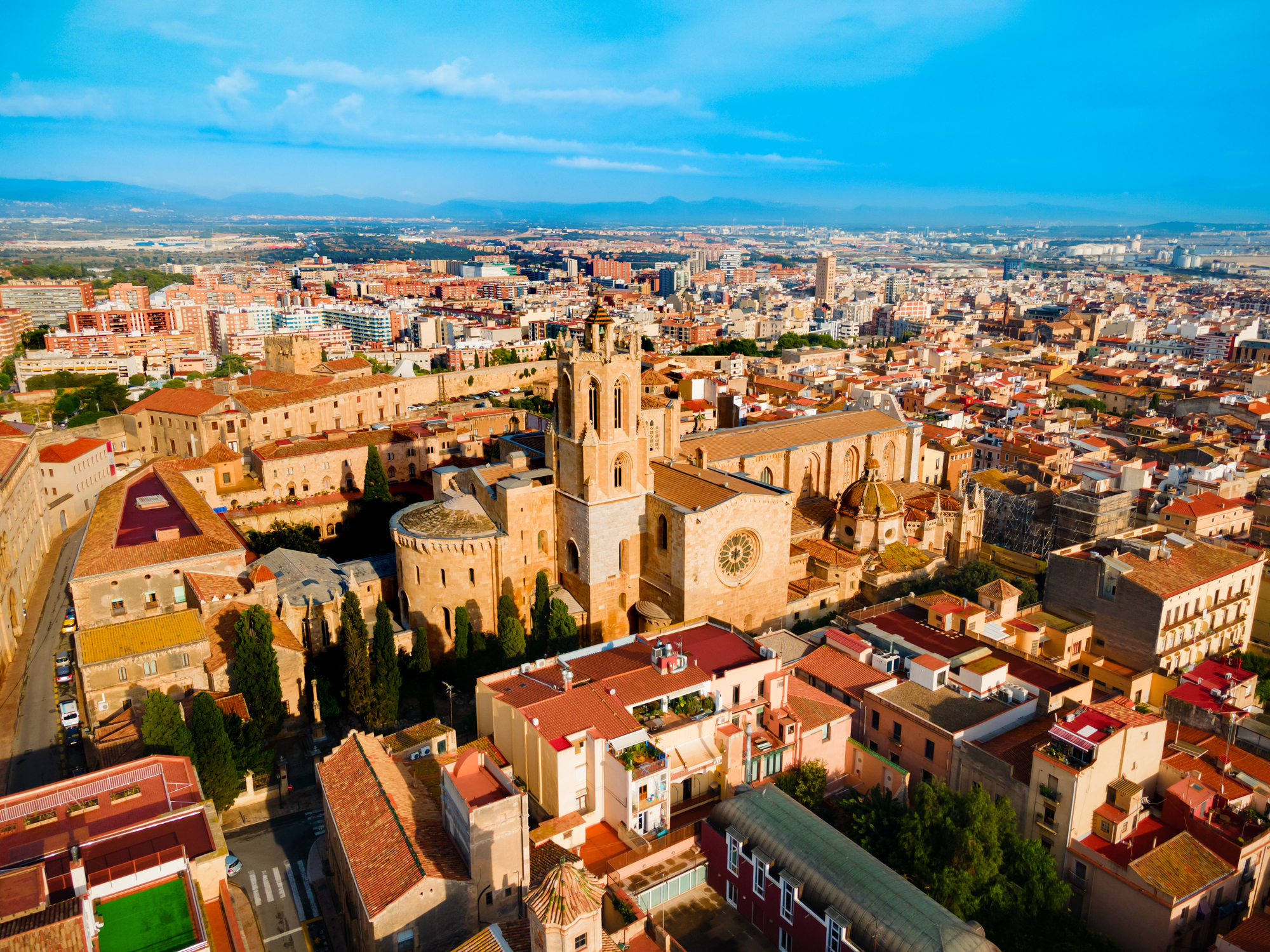 Day 7: 08:00-18:00
Day 7: 08:00-18:00Tarragona / Spain
Tarragona is a port city located in northeast Spain on the Costa Daurada by the Mediterranean Sea. Founded before the 5th century BC, it is the capital of the Province of Tarragona, and part of Tarragonès and Catalonia. Geographically, it is bordered on the north by the Province of Barcelona and the Province of Lleida. The city has a population of 201,199 (2014).
-
 Day 8:
Day 8:Day at sea / Sea
-
 Day 9: 08:00-17:00
Day 9: 08:00-17:00Casablanca / Morocco
Casablanca located in the central-western part of Morocco and bordering the Atlantic Ocean, is the largest city in Morocco. It is also the largest city in the Maghreb region, as well as one of the largest and most important cities in Africa, both economically and demographically.
Casablanca is Morocco's chief port and one of the largest financial centers on the continent. According to the 2014 population estimate, the city has a population of about 3.35 million in the urban area and over 6.8 million in the Casablanca-Settat region. Casablanca is considered the economic and business center of Morocco, although the national political capital is Rabat.
The leading Moroccan companies and international many corporations doing business in the country have their headquarters and main industrial facilities in Casablanca. Recent industrial statistics show Casablanca retains its historical position as the main industrial zone of the country. The Port of Casablanca is one of the largest artificial ports in the world, and the second largest port of North Africa, after Tanger-Med 40 km (25 mi) east of Tangier. Casablanca also hosts the primary naval base for the Royal Moroccan Navy.
-
 Day 10: 08:00-17:00
Day 10: 08:00-17:00Tangier / Morocco
-
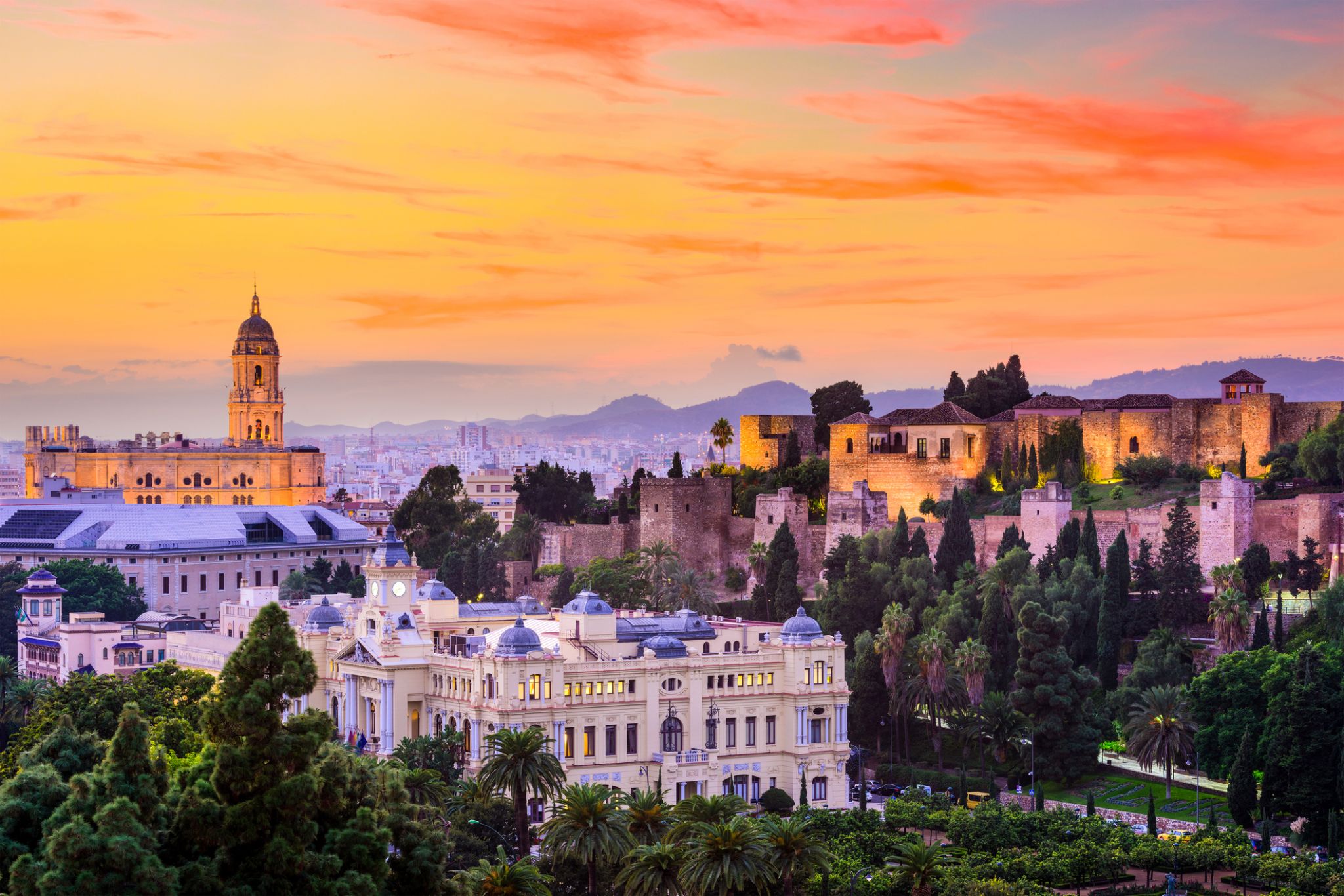 Day 11: 08:00-18:00
Day 11: 08:00-18:00Málaga / Spain
Málaga is a municipality, capital of the Province of Málaga, in the Autonomous Community of Andalusia, Spain. With a population of 569,130 in 2015, it is the second-most populous city of Andalusia and the sixth-largest in Spain. The southernmost large city in Europe, it lies on the Costa del Sol (Coast of the Sun) of the Mediterranean, about 100 kilometres (62.14 miles) east of the Strait of Gibraltar and about 130 km (80.78 mi) north of Africa.
Málaga's history spans about 2,800 years, making it one of the oldest cities in the world. According to most scholars, it was founded about 770 BC by the Phoenicians as Malaka From the 6th century BC the city was under the hegemony of Ancient Carthage, and from 218 BC, it was ruled by the Roman Republic and then empire as Malaca (Latin). After the fall of the empire and the end of Visigothic rule, it was under Islamic rule as Mālaqah for 800 years, but in 1487, the Crown of Castille gained control after the Reconquista. The archaeological remains and monuments from the Phoenician, Roman, Arabic and Christian eras make the historic center of the city an "open museum", displaying its history of nearly 3,000 years.
This important cultural infrastructure and the artistic heritage have culminated in the nomination of Málaga as a candidate for the 2016 European Capital of Culture.
The painter and sculptor Pablo Picasso, Hebrew poet and Jewish philosopher Solomon Ibn Gabirol and the actor Antonio Banderas were born in Málaga. The magnum opus of Cuban composer Ernesto Lecuona, "Malagueña", is named after the music of this region of Spain.
The most important business sectors in Málaga are tourism, construction and technology services, but other sectors such as transportation and logistics are beginning to expand. The Andalusia Technology Park (PTA), located in Málaga, has enjoyed significant growth since its inauguration in 1992. Málaga is the main economic and financial centre of southern Spain, home of the region's largest bank, Unicaja, and the fourth-ranking city in economic activity in Spain behind Madrid, Barcelona and Valencia.
-
 Day 12:
Day 12:Day at sea / Sea
-
 Day 13: 05:00-00:00
Day 13: 05:00-00:00Barcelona / Spain
Barcelona is a city in Spain. It is the capital and largest city of Catalonia, as well as the second most populous municipality of Spain. With a population of 1.6 million within city limits, its urban area extends to numerous neighbouring municipalities within the Province of Barcelona and is home to around 4.8 million people, making it the sixth most populous urban area in the European Union after Paris, London, Madrid, the Ruhr area and Milan. It is one of the largest metropolises on the Mediterranean Sea, located on the coast between the mouths of the rivers Llobregat and Besòs, and bounded to the west by the Serra de Collserola mountain range, the tallest peak of which is 512 metres (1,680 feet) high.
Founded as a Roman city, in the Middle Ages Barcelona became the capital of the County of Barcelona. After merging with the Kingdom of Aragon, Barcelona continued to be an important city in the Crown of Aragon as an economic and administrative centre of this Crown and the capital of the Principality of Catalonia. Barcelona has a rich cultural heritage and is today an important cultural centre and a major tourist destination. Particularly renowned are the architectural works of Antoni Gaudí and Lluís Domènech i Montaner, which have been designated UNESCO World Heritage Sites. The headquarters of the Union for the Mediterranean are located in Barcelona. The city is known for hosting the 1992 Summer Olympics as well as world-class conferences and expositions and also many international sport tournaments.
Barcelona is one of the world's leading tourist, economic, trade fair and cultural centres, and its influence in commerce, education, entertainment, media, fashion, science, and the arts all contribute to its status as one of the world's major global cities. It is a major cultural and economic centre in southwestern Europe, 24th in the world (before Zürich, after Frankfurt) and a financial centre. In 2008 it was the fourth most economically powerful city by GDP in the European Union and 35th in the world with GDP amounting to €177 billion. In 2012 Barcelona had a GDP of $170 billion; and it was leading Spain in employment rate in that moment.
In 2009 the city was ranked Europe's third and one of the world's most successful as a city brand. In the same year the city was ranked Europe's fourth best city for business and fastest improving European city, with growth improved by 17% per year, and the city has been experiencing strong and renewed growth for the past three years. Since 2011 Barcelona has been a leading smart city in Europe. Barcelona is a transport hub, with the Port of Barcelona being one of Europe's principal seaports and busiest European passenger port, an international airport, Barcelona–El Prat Airport, which handles over 50 million passengers per year, an extensive motorway network, and a high-speed rail line with a link to France and the rest of Europe.

